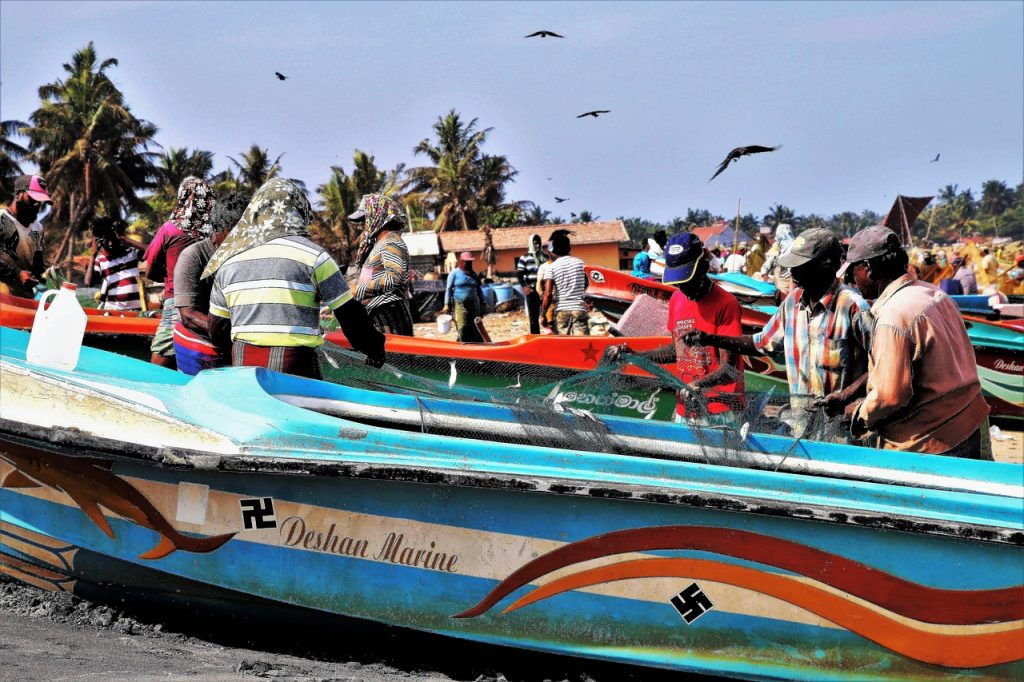Nazi Symbols In Thailand Posted by Constanze on Mar 20, 2019 in Culture
Guten Tag! You may know that in Germany it is illegal to publicly display a Nazi symbol, be it on clothing or otherwise. Doing so can land you three years in jail (it is not illegal, however, if it is for the purposes of art). It is also illegal to do the Nazi salute, say ‘Heil Hitler’ in public, and to incite hate speech (die Volksverhetzung in German).
In Thailand and other parts of South-East Asia, Nazi imagery does not have the same stigma that it has in the west. You can openly buy goods with a Hakenkreuz (swastika) or Hitler print on them, for example. But don’t be alarmed! This does not mean that South-East Asia is full of neo-Nazis. It is more to do with the school curriculum.
The school curriculum in this part of the world does teach about World War II, but the content is heavily focused on Japan, one of Germany’s allies; during World War II the Japanese invaded China and wanted to take over the entirety of South-East Asia. This is the main focus for this part of history.
For this reason, it is said, the topic of Hitler simply does not hold the same weight that it does in the west. And many citizens are not aware that they are causing offence when they wear these symbols on their clothes.
In January of this year, Pitchayapa Natha from Thai girl band BNK48 wore a t-shirt with Hakenkreuz on it. Footage of her wearing it went viral and caused an uproar. She was mortified and apologised immediately when she found out that it was inappropriate; she said she didn’t know.
So, do not be alarmed if you visit Thailand and see Nazi/Hitler symbols on items, products and buildings!The swastika, in fact, is originally an Indian symbol that signifies peace and luck. Therefore, you are likely to see it on the front of Hindu temples and elsewhere, especially in India, Nepal and Sri Lanka.
Key vocabulary
World War II – der Zweite Weltkrieg (often written as 2. Weltkrieg)
Swastika – das Hakenkreuz
Thailand – Thailand
South-East Asia – Südostasien
illegal – illegal / verboten (forbidden)
school curriculum – der Lehrplan / das Curriculum
stigma – das Stigma
symbol – das Symbol
ally – der Alliierte
Japan – Japan (J is spoken like a Y)
cultural differences – die kulturelle Unterschiede
temple – der Tempel
Hinduism – der Hinduismus

Build vocabulary, practice pronunciation, and more with Transparent Language Online. Available anytime, anywhere, on any device.






Comments:
prakash:
What Miss Constance is wrote is right: Swastika is divine Hindu symbol and stands for peace but Hitlar stolen it and misused it http://theconversation.com/how-nazis-twisted-the-swastika-into-a-symbol-of-hate-83020
Jo Alex SG:
But it´s not exactly the same symbol the Nazis used, it´s actually a much older one, a sacred symbol of of goodness present not only in Hinduism, Buddhism and the amazing indigenous religion of Tibet, Bön, but also in Native American cultures and even among the Ashanti in Africa (and in Ethiopia)!
Constanze:
@Jo Alex SG Hi! Thanks for the additional information! I am limited as to what photos I can use on this blog (due to copyright) so it was difficult to find anything suitable. Hopefully if this sparks readers’ interest they can do further research and see for themselves. 🙂